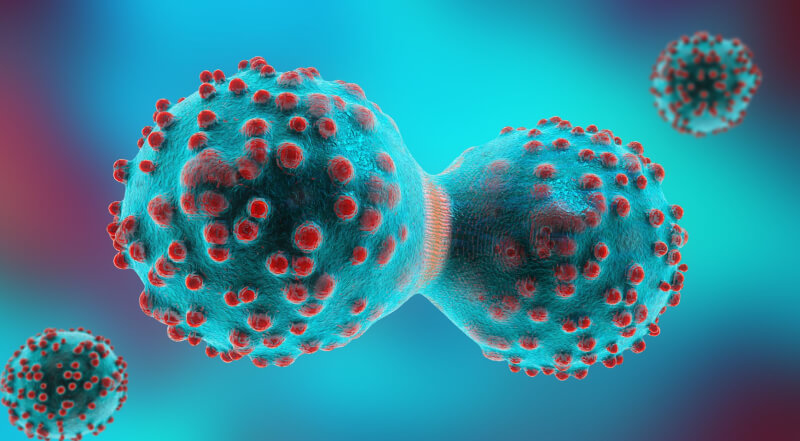Genetic Cancer
Everything You Need To Know About Genetic Cancer
Cancer is a genetic disease—that is, cancer is caused by certain changes to genes that control the way our cells function, especially how they grow and divide. Genes carry the instructions to make proteins, which do much of the work in our cells. Certain gene changes can cause cells to evade normal growth controls and become cancer. Genetic changes that promote cancer can be inherited from our parents if the changes are present in germ cells, which are the reproductive cells of the body (eggs and sperm). Such changes, called germline changes, are found in every cell of the offspring.
Cancer-causing genetic changes can also be acquired during one’s lifetime, as the result of errors that occur as cells divide or from exposure to carcinogenic substances that damage DNA, such as certain chemicals in tobacco smoke, and radiation, such as ultraviolet rays from the sun. Genetic changes that occur after conception are called somatic (or acquired) changes.
Cancer cells have more genetic changes than normal cells. But each person’s cancer has a unique combination of genetic alterations. Some of these changes may be the result of cancer, rather than the cause. As the cancer continues to grow, additional changes will occur. Even within the same tumor, cancer cells may have different genetic changes.

Hereditary Cancer Syndromes
Though we have not identified genetic causes for all types of cancer, we do know several gene changes, or mutations, that can be passed down from parent to child and increase a person’s risk of developing the disease. These changes are known as hereditary cancer syndromes.
Genetic tests for hereditary cancer syndromes can tell whether a person from a family that shows signs of such a syndrome has one of these mutations. These tests can also show whether family members without obvious disease have inherited the same mutation as a family member who carries a cancer-associated mutation.
Here are examples of genes that can play a role in hereditary cancer syndromes.
- The most commonly mutated gene in all cancers is TP53, which produces a protein that suppresses the growth of tumors. In addition, germline mutations in this gene can cause Li-Fraumeni syndrome, a rare, inherited disorder that leads to a higher risk of developing certain cancers.
- Inherited mutations in the BRCA1 and BRCA2 genes are associated with hereditary breast and ovarian cancer syndrome, which is a disorder marked by an increased lifetime risk of breast and ovarian cancers in women. Several other cancers have been associated with this syndrome, including pancreatic and prostate cancers, as well as male breast cancer.
- Another gene that produces a protein that suppresses the growth of tumors is PTEN. Mutations in this gene are associated with Cowden syndrome, an inherited disorder that increases the risk of breast, thyroid, endometrial, and other types of cancer.
What types of cancer can run in families because of genetics?
Although cancer is common, only 5-10% of it is hereditary, meaning an individual has inherited an increased risk for cancer from one of their parents. This inherited risk for cancer is caused by a small change (called a mutation) in a gene, which can be passed from one generation to the next in a family. When someone inherits this type of gene mutation from a parent, they have an increased risk to get a certain type (or types) of cancer. Some cancers that can be hereditary are:
- Breast cancer
- Colon cancer
- Prostate cancer
- Ovarian cancer
- Uterine cancer
- Melanoma (a type of skin cancer)
- Pancreatic cancer
Identifying Genetic Changes in Cancer
Lab tests called DNA sequencing tests can “read” DNA. By comparing the sequence of DNA in cancer cells with that in normal cells, such as blood or saliva, Best Oncologist for Genetic Screening in cancer cells that may be driving the growth of an individual’s cancer. This information may help doctors sort out which therapies might work best against a particular tumor. For more information, see Biomarker Testing for Cancer Treatment.
Tumor DNA sequencing can also reveal the presence of inherited mutations. Indeed, in some cases, the genetic testing of tumors has shown that a patient’s cancer could be associated with a hereditary cancer syndrome that the family was not aware of.
As with testing for specific mutations in hereditary cancer syndromes, clinical DNA sequencing has implications that patients need to consider. For example, they may learn incidentally about the presence of inherited mutations that may cause other diseases, in them or in their family members.
Make An Appointment
Other type of Cancer
Get Opinion from the expert for most effective treatment approach
